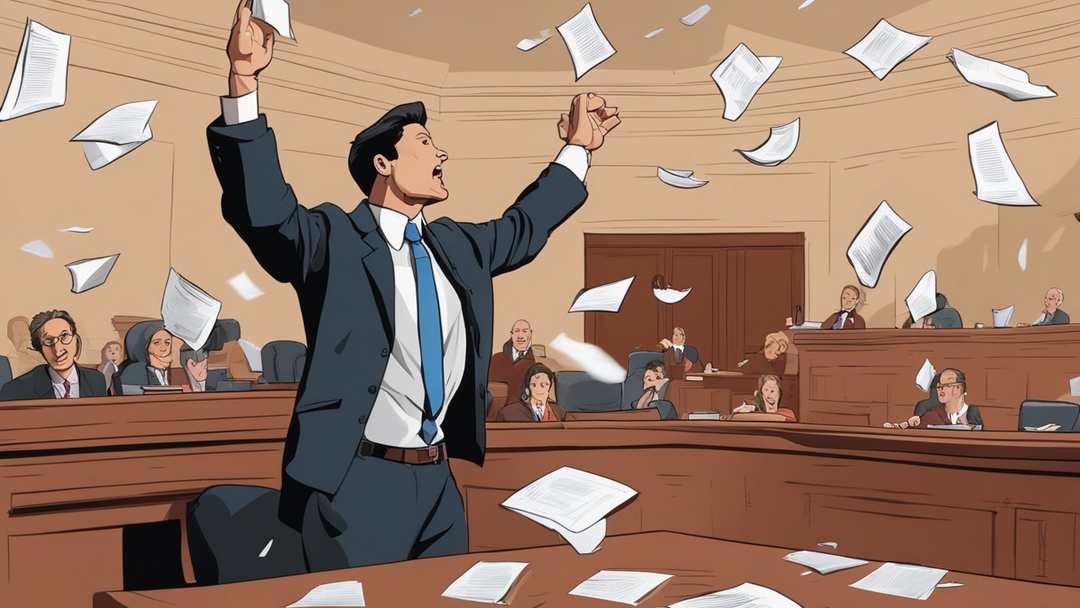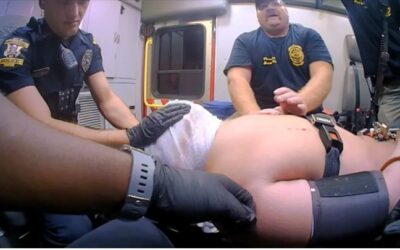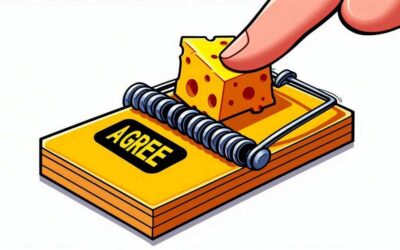What is the Exclusionary Rule?
The Exclusionary Rule is a legal principle in the United States that prevents the government from using most evidence gathered in violation of the United States Constitution. Specifically, it applies to evidence obtained through an unreasonable search or seizure, which violates the Fourth Amendment. Here’s a concise breakdown:
What It Does: The Exclusionary Rule ensures that evidence obtained unlawfully cannot be used against a defendant in a criminal trial. If the police or other law enforcement agents violate a person’s constitutional rights during a search or seizure, any evidence they collect as a result is considered tainted and inadmissible in court.
Origins: The rule was established by the Supreme Court in the case of Mapp v. Ohio. This decision clarified that evidence obtained through an unreasonable search or seizure (i.e., without a valid warrant or probable cause) cannot be used against the accused.
Exceptions: While the Exclusionary Rule is a powerful safeguard, there are exceptions:
Good Faith Exception: Evidence may not be excluded if officers reasonably relied on an invalid search warrant or binding appellate precedent.
Independent Source Doctrine: If evidence initially obtained unlawfully is later obtained through a valid search or seizure, it may become admissible.
The Exclusionary Rule aims to protect individuals’ constitutional rights and maintain the integrity of the justice system. It discourages law enforcement from obtaining evidence illegally.
What are some real-life examples of the Exclusionary Rule?
How does this rule impact criminal investigations?
Are there any controversies surrounding the Exclusionary Rule?
The Exclusionary Rule significantly impacts criminal investigations in the following ways:
Deterrence: Law enforcement officers are deterred from conducting unlawful searches or seizures because they know that any evidence obtained illegally will be excluded from court proceedings. This encourages adherence to constitutional rights and proper procedures.
Evidence Suppression: If evidence is collected in violation of the Fourth Amendment (e.g., without a valid warrant or probable cause), it cannot be used against the accused. This can weaken the prosecution’s case and may lead to acquittals or reduced charges.
Police Practices: The Exclusionary Rule influences police practices by emphasizing the importance of respecting citizens’ rights. Officers receive training on lawful search and seizure methods to avoid violating constitutional protections.
Case Outcomes: When evidence is excluded due to the rule, cases may collapse or result in plea bargains. It affects trial dynamics and can impact the overall outcome of criminal proceedings.
What happens if evidence is accidentally obtained unlawfully?
If evidence is “accidentally” obtained unlawfully, it still falls under the Exclusionary Rule. The rule doesn’t distinguish between intentional or accidental violations of constitutional rights. If law enforcement inadvertently violates a person’s Fourth Amendment rights during a search or seizure, any evidence collected as a result would be considered tainted and inadmissible in court. The goal is to maintain the integrity of the justice system and protect individuals’ rights.
Here are some examples of accidentally obtained evidence
Unauthorized Searches: Law enforcement conducts searches without a proper warrant or lacks sufficient justification. For instance, entering a home without consent or a valid reason.
Deceitful Practices: Police gather evidence through deceptive means, such as misleading suspects during interrogations or using false pretenses to obtain information.
Coerced Confessions: Extracting confessions through coercion or intimidation violates a defendant’s rights and renders the evidence tainted.
Invasion of Privacy Rights: Collecting evidence by invading an individual’s privacy, like unauthorized wiretapping or surveillance, falls under this category.
The Exclusionary Rule: Purpose and Application
The exclusionary rule, established in Weeks v. United States (1914) and applied to the states in Mapp v. Ohio (1961), mandates that evidence obtained in violation of the Fourth Amendment cannot be used in a court of law. The primary purpose of this rule is to deter police misconduct and to protect the integrity of judicial proceedings by excluding illegally obtained evidence.
However, its application has been primarily limited to criminal cases. The Supreme Court has been reluctant to extend the exclusionary rule to civil cases, as evidenced by decisions in cases like United States v. Janis (1976), where the Court held that the rule does not apply to civil tax proceedings.
Government Use of Drones to Obtain Evidence
See 2024 Michigan Supreme Court Case – Long Lake Township v. Maxon: Where a drone was used to obtain evidence and was challenged was allowed to be used and why.
What the Exclusionary Rule means in one long sentence: This rule states that if law enforcement officials obtain evidence through illegal means—like an unlawful search or seizure—the evidence generally cannot be used in a criminal trial against the person whose rights were violated.
At Komorn Law, we specialize in navigating the complex landscape of constitutional law. This recent Supreme Court decisions illustrates the nuanced legal analyses and strategic thinking that we bring to our practice, ensuring that our clients receive informed and effective representation.
Our commitment to understanding and influencing the trajectory of legal standards helps us advocate for a balanced approach to individual rights and public safety.
And now for something completely different….
Michigan Law: Motor vehicles; sale on Sunday unlawful
In Michigan, it’s still technically illegal to sell a car on a Sunday, under Section 435.251 of the Michigan Compiled Laws (MCL). This peculiar law harkens back to historical blue laws, which restricted certain activities on Sundays for religious reasons. Despite changes in societal norms and the separation of church and state, this statute remains on the books, though rarely enforced.
Recent
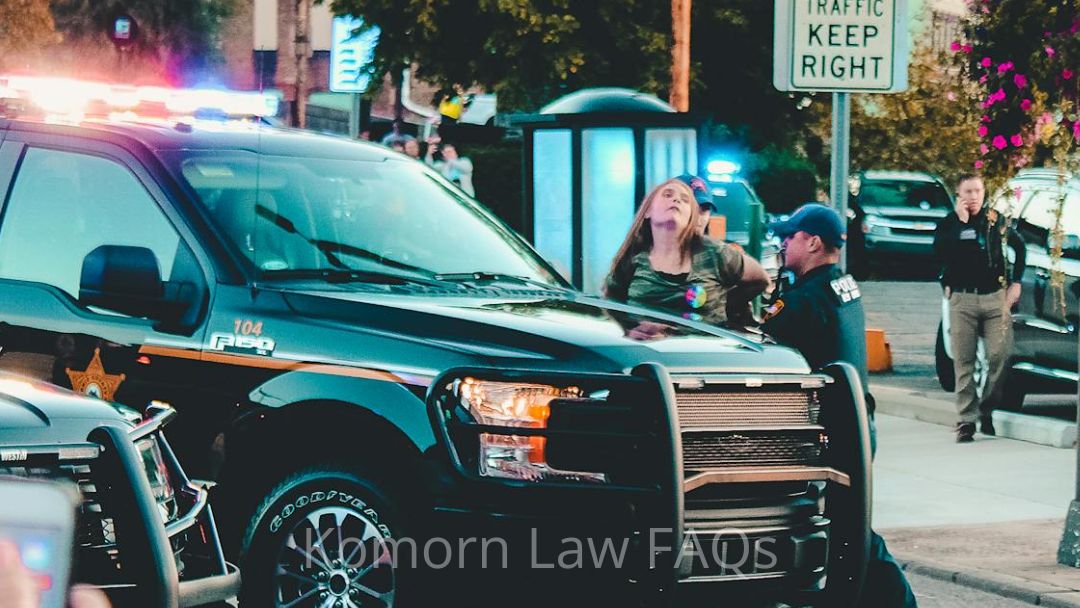
Criminal Law FAQs – Operating While Intoxicated (DUI – OWI)
Michigan Criminal Laws FAQs Drunk Driving (Operating While Intoxicated - OWI)FAQ 1: What is the legal blood alcohol content (BAC) limit in Michigan? Answer: In Michigan, the legal BAC limit for operating a vehicle is 0.08% for individuals 21 years of age or older. For...
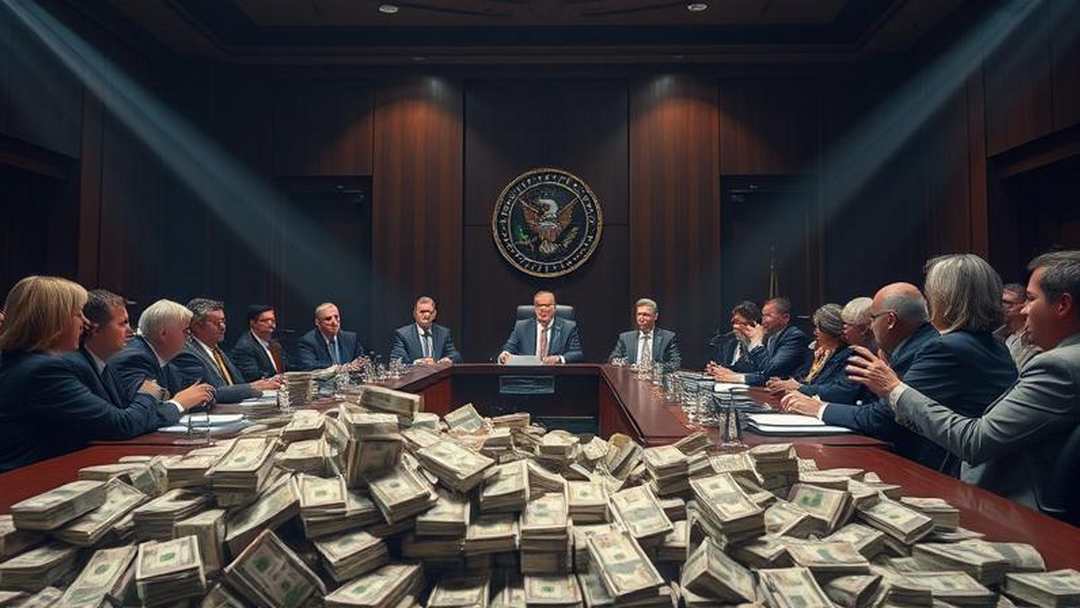
The Case of Cannarbor -v- The Michigan Dept of Treasury
Nice Try...This case centered on the disagreement between Cannarbor, Inc., a medical marijuana provisioning center operating in Michigan, and the Michigan Department of Treasury concerning the obligation to collect sales tax on the retail sale of medical marijuana....
Other Articles
Video kept from family shows police force not drugs killed son
police and paramedics inflicted “inhumane acts of violence”A mother has filed a federal lawsuit claiming that, while her son was experiencing a seizure in his Tennessee apartment, police and paramedics inflicted “inhumane acts of violence” on the 23-year-old instead...
What could happen when you click the – I agree – box?
Wrongful death suit against Disney serves as a warning to consumers when clicking ‘I agree’A wrongful death lawsuit involving Walt Disney Parks and Resorts highlights the critical importance for consumers to meticulously review the fine print before registering for a...
4th Circuit says – Assault weapons can be banned
This case is about whether the Act’s general prohibition on the sale and possession of certain “assault weapons,” are unconstitutional under the Second Amendment. An en banc federal appeals court upheld Maryland’s ban on assault-style weapons in a 10-5 decision...
SCOTUS – Justices uphold laws targeting homelessness
Does not amount to “cruel and unusual punishment” under the Eighth Amendment The Supreme Court has affirmed the validity of ordinances in a southwest Oregon city that restrict individuals experiencing homelessness from utilizing blankets, pillows, or cardboard boxes...

